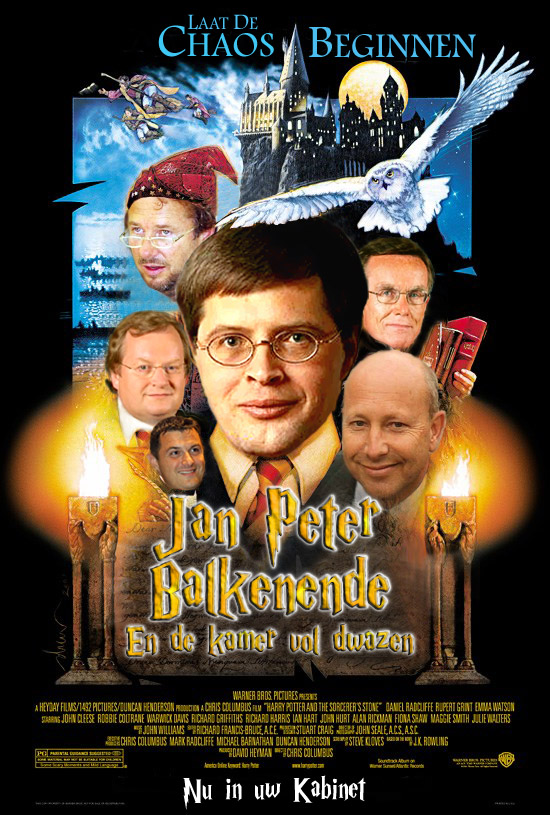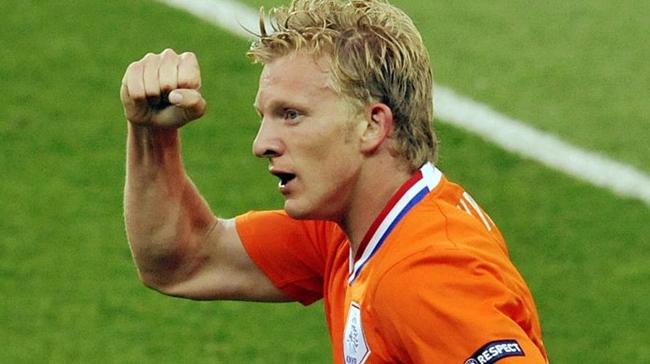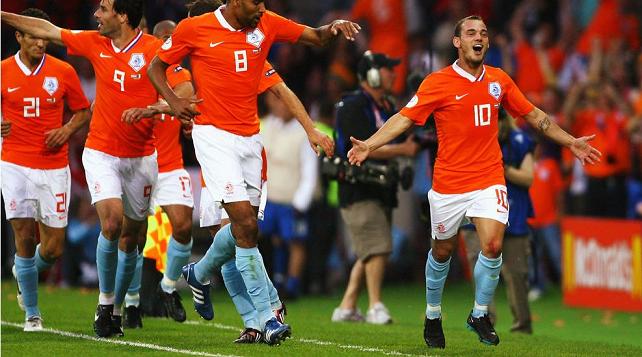
The British might think that their prime minister is dour, but Gordon Brown has nothing on Jan Peter Balkenende, our national Harry Potter lookalike. He has been a national embarassement from the first moment he awkwardly moved into the spotlight, especially when meeting with foreign leaders, having the knack to even make Bush look good in comparison. You can be a Christian politician and still have a certain style and grace, as his fellow Christian-Democrat Andre Rouvoet shows. But then Rouvoet comes from a proper traditional protestant background, whereas Balkenende is sort of a retro-protestant, not so much a conservative as someone who wants to reinvent the past. A common accusation against Balkenende is that he wants Holland to move back to the fifties, but the fifties he wants us to move back to never existed; Balkenende himself was only born in 1956, so he never experienced the fifties personally. Instead he seems to have build up this idealised vision of a time when Holland was still Holland, with the family as the cornerstone of society, where everybody knew their place and there was a place for everybody, the churches were full on Sunday, brussel sprouts were the national vegetable and everybody worked hard and trusted their betters.
Therefore, unlike previous leaders of the CDA, e.g. Ruud Lubbers, who were largely pragmatic doers, Balkenende sees it as his job as prime minister to scold the rest of us into behaving. Which is why a few weeks back he started complaining that we complain too much in this country, that we should be pleased we are such a rich and prosperous country, grateful that most of us are quite well off. It’s ture that, to put it bluntly, we’re a nation of whingers, as anybody who reads the papers in the runup to and during a major football tournament — like the one which coincidently started this Saturday — knows. This is not a bad thing, unless you’re a moralistic sourpuss like Balkenende, who wants to see us as a nation of happy, uncomplaining worker bees. In my experience, the people who whinge the most about how cynical we are, or how distrustful are almost always snake oil sellers and Balkenende fits that pattern beautifully.
If he had his way, he would prescribe that new drug that makes you trust strangers to the entire Dutch nation, the better to sell his own plans. Apart from his fetish about politeness and respect he’s an empty suit, a hypocrite who obsesses over the motes in our eyes while ignoring the beam in his own, to speak in his own lingo. He worries about the lack of respect the police get while under his leadership we took part in the illegal and immoral occupation of Iraq and Afghanistan, while at home the gap between rich and poor grew so much that we now have food banks in almost all major cities while CEOs get record salaries. No wonder he doesn’t want us to complain: he knows he is the number one target of our complaints.
Interestingly, a majority of the Dutch population does seem to agree with Balkenende that we complain too much. If we can believe the results of a poll doen by one of the free newsrags, sixty percent of us thinks others complain too much, though only nine percent thinks the same about themselves, because whent hey complain, they have good reason to. Myself, I think whinging is a human right and being slightly cynical and whingy makes you less vulnerable to snake oil merchants like Balkie.


